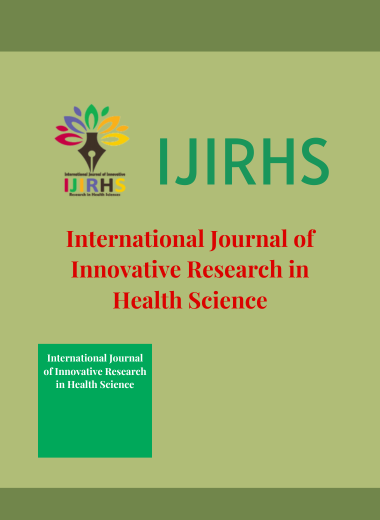- Mirdhulaw Chezhian S.N, Ms. Priyanka. D, Mr. RagulPandi P, Ms. Vaithegi B, Ms. Vijayalakshmi R, & K. Sharon Evangelin
- Volume 2, Issue 1
Address:1 Mirdhulaw Chezhian S.N, 2 Ms. Priyanka. D, 3 Mr. RagulPandi P, 4 Ms. Vaithegi B,5Ms. Vijayalakshmi R, & 6K. Sharon Evangelin
- B.Sc Nursing, Dr. M.G.R Educational and Research Institute, Velappanchavadi, Chennai-77
- B.Sc Nursing, Dr. M.G.R Educational and Research Institute, Velappanchavadi, Chennai-77
- B.Sc Nursing, Dr. M.G.R Educational and Research Institute, Velappanchavadi, Chennai-77
- B.Sc Nursing, Dr. M.G.R Educational and Research Institute, Velappanchavadi, Chennai-77
- B.Sc Nursing, Dr. M.G.R Educational and Research Institute, Velappanchavadi, Chennai-77
- Associate professor, Faculty of Nursing, Dr. M.G.R Educational and Research Institute, Velappanchavadi, Chennai-77
ABSTRACT
Background: Cyber safety is a critical concern for school students in today’s digital age, where online interactions are prevalent. With the increasing use of technology for education and socialization, students face various risks, including cyber bullying, privacy breaches, and exposure to inappropriate content.
Objective: To assess the knowledge and attitude regarding cyber safety among school students.
Methods: A quantitative study was conducted using a descriptive design. The population consisted of school students, with a sample size of 50 selected from those who met the inclusion criteria using systematic random sampling at Good Shepherd School, Valasaravakkam, Chennai. Data was collected with self-structured questionnaire.
Results: The study assessed school students’ knowledge and attitudes towards cyber safety, revealing that a majority (80%) had inadequate knowledge, 16% had moderately adequate knowledge, and 4% had adequate knowledge. Attitude levels were also varied, with 56% demonstrating a negative attitude, 32% a moderately positive attitude, and 12% a highly positive attitude. There was a mild positive correlation (r = 0.327, p < 0.05) between knowledge and attitude, suggesting that improved knowledge is associated with a more positive attitude towards cyber safety. (Among demographic variables, the area of residence showed a significant association with knowledge levels (χ² = 14.193, p = 0.001), while other demographic factors did not significantly influence either knowledge or attitude.)
Conclusion: This study shows that there was an inadequate knowledge and attitude regarding cyber safety among school students. we have to create more awareness about cyber safety among school students to improve the knowledge and attitude.
Keywords: Cyber safety, knowledge, attitude, school students.
- Mirdhulaw Chezhian S.N, Ms. Priyanka. D, Mr. RagulPandi P, Ms. Vaithegi B, Ms. Vijayalakshmi R, K. Sharon Evangelin (2024). A Study to Assess Knowledge and Attitude Regarding Cyber Safety Among School Students at Selected School. International Journal of Innovative Research in Health Science, 2(1), 11-24.



